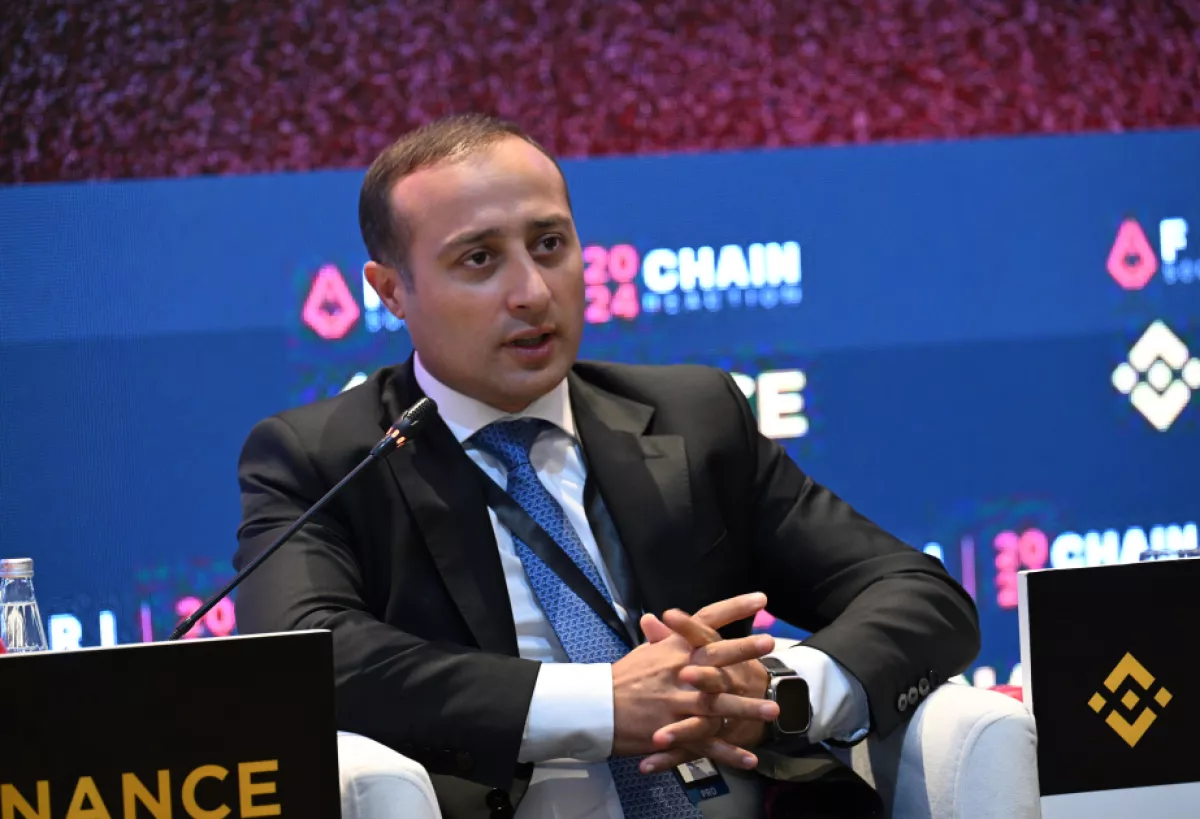Azerbaijan’s bold digital leap: Goals set for 2030 Fourth Industrial Revolution
In recent years, Azerbaijan has significantly accelerated its digital transformation efforts, embracing the elements of the Fourth Industrial Revolution (4.0). These initiatives span various sectors, including manufacturing, energy, and transportation, focusing on the digitalization of business processes and control systems. The country is also developing "smart" cities and villages, modernizing its utility sector, and building an IT ecosystem to support startups and incubators.
The Center for Analysis and Coordination of the Fourth Industrial Revolution (C4IR), which operates under the Ministry of Economy, has successfully crafted a digital economy strategy extending to 2030. The progress and future directions in these areas were explored during the panel discussions at the Chain Reaction 2024 forum, recently held in Baku.
"To date, Azerbaijan has completed the development of its digital economy strategy, which we began working on last year," said Fariz Jafarov, Executive Director of C4IR Azerbaijan, during the panel discussion titled "Diving into the Digital and Metaverse Economy" at the Chain Reaction 2024 forum. "As part of the new strategy, we have identified 51 major initiatives to be implemented by 2030," he added.

It is important to note that a special working group was established under the C4IR Center in December 2022 to develop this strategy, aimed at building a sustainable and competitive IT sector. The new strategy encompasses digitalization across various sectors, including tourism, transportation and logistics, industry, agriculture, and food security. It also addresses areas such as Big Data, artificial intelligence (AI), the Internet of Things (IoT), and digital marketing.
The strategy includes a strong focus on public-private partnerships, with plans to involve the private sector in approximately 34 projects and the public sector in about a dozen initiatives. The medium-term program is primarily aimed at modernizing digital infrastructure and expanding the digitalization of business processes, in line with the "Industry 4.0" concept.
Overall, Azerbaijan is implementing a range of programs aimed at enhancing the competitiveness of national businesses and elevating them to a new level by providing entrepreneurs with the necessary tools and infrastructure, including the development of an effective digital ecosystem. This ecosystem relies heavily on data processing centers (DPCs), storage systems (data centers), cybersecurity efforts, and reforms in payment systems that integrate various organizations.
Under the Smart City program, digital management systems for "smart" cities and villages are being implemented in Baku, Ganja, and the revitalized towns and villages of the Karabakh region. These systems include components of "green" energy and energy-efficient technologies in the utility sector. This work is supported by companies and specialists from Türkiye, Israel, several European countries, and China.
In recent years, progress has been made in creating an environmental niche for IT startups and establishing specialized incubation centers in scientific institutions and universities to promote software businesses and train startup founders. Pilot projects are being carried out to implement IoT and AI technologies. This momentum is expected to continue, and by 2026, the number of active startups in Azerbaijan could grow from the current 220 to 500.
The implementation of Azerbaijan's digital economy strategy through 2030 introduces new opportunities in advanced IT technologies. Specifically, specialists from C4IR Azerbaijan are preparing to deploy large language models for AI, working on creating a digital twin of the country’s economy, and developing projects that apply artificial intelligence in sectors such as energy and sports. Additionally, complex areas like Web3 and the metaverse are being explored due to their significant role in the future digital economy.
The C4IR Center is also actively supporting initiatives in cryptocurrencies and blockchain, with collaboration established with Binance—a leading global entity in this field.
"We [Binance] continue to explore ways to accelerate the incubation of new businesses that will define the future of both the crypto industry and finance as a whole," said Rachel Conlan, Chief Marketing Officer of Binance, at the forum in Baku. She highlighted that this collaboration includes working closely with Azerbaijan's Ministry of Economy.

Another important aspect of the new strategy is enhancing the skills of IT professionals and expanding digital knowledge among a wide range of users and market participants. "In the past year alone, 10,000 people have completed free online educational programs, and next year we plan to fund online education for 200,000 individuals through 8,000 educational programs," said Fariz Jafarov during the panel discussions. "Major organizations such as Google, Meta, and Amazon, as well as leading universities like Stanford, Yale, and Michigan, will offer their online courses to Azerbaijani citizens as part of the digital talent development initiative."
According to Jafarov, substantial investments will be made in ongoing education for citizens, with the program targeting 650 companies undergoing digital transformation and participating in Industry 4.0 projects. Moreover, educational centers and specialized innovation hubs will be established not only in Baku but also in Lankaran, Ganja, and Sumgayit.
Diagnostic assessments of various private and public organizations will be conducted to identify gaps in the digitalization process. This will help shape the vision for the future and allow for adjustments to the transformation programs. At the same time, the government is prepared to fund international certifications for specialists, covering their costs to quickly build a skilled workforce in the country.
"We are also collaborating with universities and plan to establish a major next-generation technology center in Azerbaijan where businesses can see firsthand how to transition to digital processes. In partnership with Google, we are developing GIS software, and with Apple, we are working on a project to create four certification centers in collaboration with universities to train students," said Jafarov.
Moreover, similar initiatives for developing a skilled workforce are underway through the Innovation and Digital Development Agency (IDDA) under Azerbaijan’s Ministry of Digital Development and Transport. One of the most notable initiatives is the Technest scholarship program, which aims to train highly qualified IT professionals. The number of graduates from this program has already surpassed 4,000 and is expected to grow to 19,000 in the near future.
In addition, IDDA is launching projects related to digital government, digital competencies, and the innovation ecosystem under the unified brand Digital Azerbaijan. This includes developing products for initiatives such as Digital Academy, Digital Finance, Mygov, Digital Docs, Digital Login, and more.
Overall, the new strategy aims to achieve two main objectives: accelerate the digitalization of various sectors of the economy and enhance the digital skills of citizens. By implementing this strategy, Azerbaijan aims to expedite the digital transformation of its economy, increase its competitiveness, and better integrate into the global division of labor with a focus on innovative trends.








